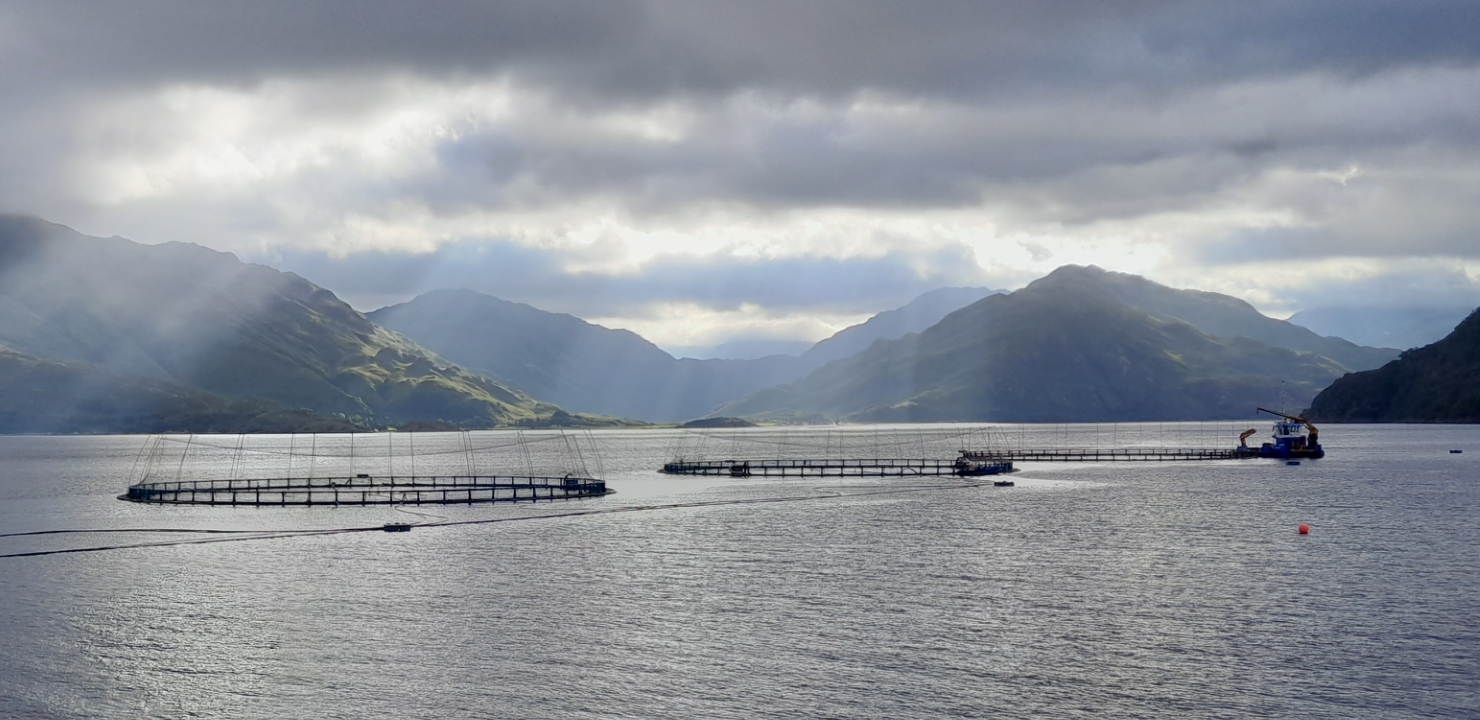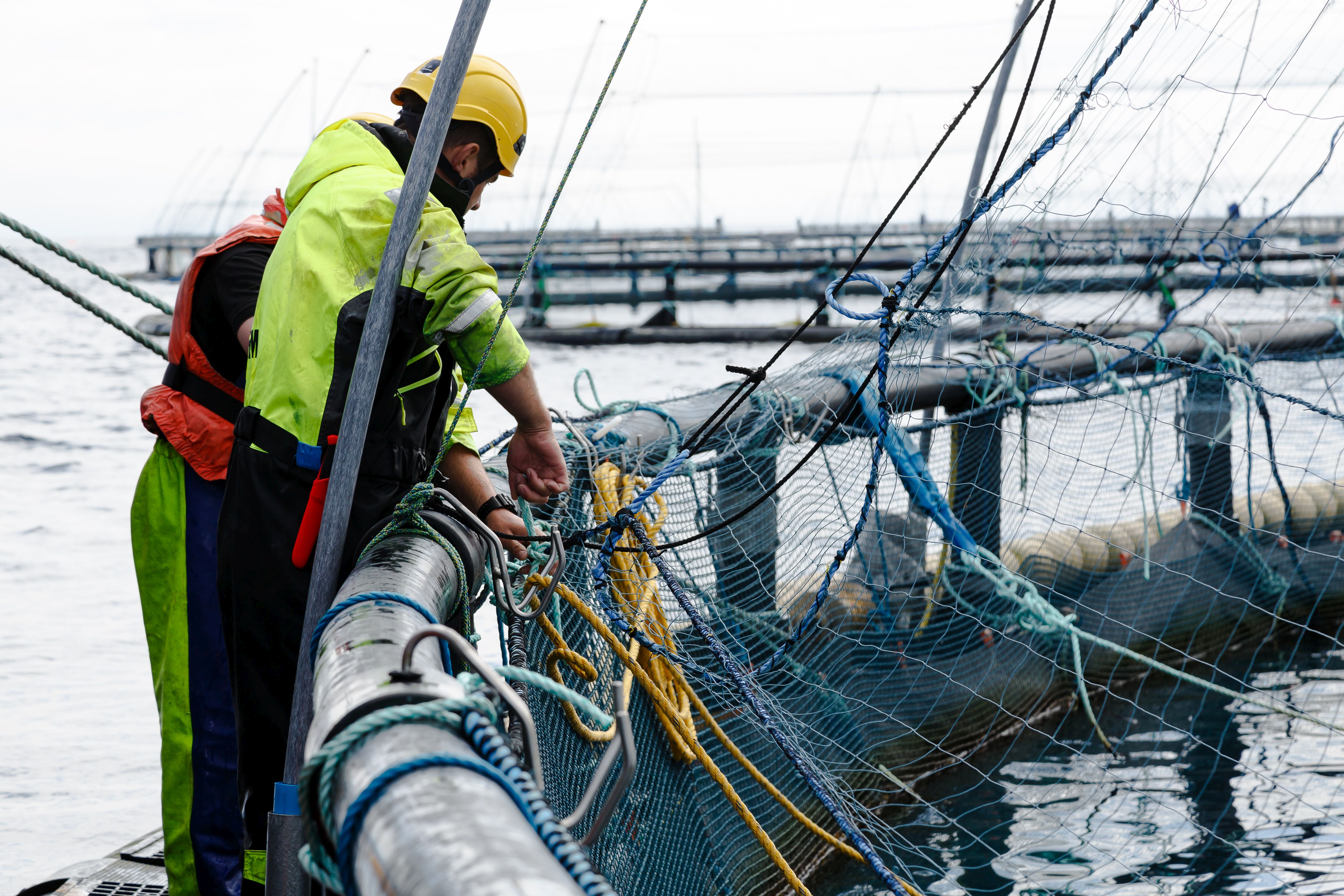Mowi Scotland battling back against severe biological issues

Mowi Scotland continued to be plagued by biological problems during the final quarter of 2023, company figures show today.
Challenges were unusually intense, with a high level of amoebic gill disease (AGD) which the company said was linked to the El Niño cyclical climate phenomenon and all-time high seawater temperatures. Jellyfish had also contributed to gill damage issues.
Freshwater treatment capacity to mitigate against AGD has been increased in the last years, but last year strong and prolonged easterly storms throughout October prevented routine freshwater treatment, causing severe gill damage in combination with high densities of jellyfish.
These environmental challenges had an adverse effect on operating metrics as well as financial performance, Mowi said. It also affected harvest weights and cost, resulting in an operational loss (EBIT) of €1.1m (around £900,000) against a profit of €7m (£5.9m) 12 months earlier. This is despite record Q4 results for the group internationally.
This is the equivalent of a loss of €0.10 per kilo compared with a profit of €0.67 per kilo in Q4 2022. The financial EBIT amounted to €3.3m (£1.97m) against €22.7m (£19.7m) in Q4 2022.
There was better news in terms of the overall price achieved in Scotland, which was 32% above the reference price in the quarter (15% above in 2022).
The contribution from contracts, including contribution from Consumer Products, was positive relative to the reference price in the fourth quarter of both 2023 and 2022.
The contract share was 66% in the quarter (82%). Harvest volume was relatively stable at 10 568 tonnes gutted weight (10 386 tonnes in the comparable quarter).
The year-to-date harvest volume for Mowi Scotland was 54,950 tonnes, up from 48,374 tonnes in 2022 on increased full-year production.
The biological situation improved in December on declining seawater temperatures, with the month being notably cooler than in December the previous year.

Mowi Scotland said the problems call for more robust salmon and a shorter production cycle in sea in order to, amongst other things, avoid a second summer and autumn in sea.
The report added: “With this in mind, Mowi last year acquired the Dawnfresh bankruptcy estate’s Loch Etive trout sites.
“Loch Etive is particularly suitable for post-smolt farming due to its brackish water. In December, Mowi Scotland received the final regulatory approval to convert these trout sites to post-smolt salmon production.
“This will give us a total annual post-smolt production in Scotland of 6.6 million smolt, equivalent to a coverage of 30%. Consequently, Mowi Scotland’s post-smolt project has several benefits compared with a land-based facility, including lower capital expenditure, shorter realisation time and lower running production cost.”
Another important part of Mowi Scotland’s biological turnaround plan is to become self-sufficient for eggs.
After receiving the final permit, Mowi Scotland has started the groundwork for a new bespoke broodstock and egg facility at Ardessie in Northern Scotland.
When complete in 2025, it will provide a secure supply for 100% of Mowi Scotland’s egg requirements.
The report concludes: “Furthermore, Mowi Scotland maintains an active programme to secure new farming locations to support further growth and secured approval for a new site in Kilbrannan Sound with a MAB [maximum allowed biomass] of 2,450 tonnes.”

